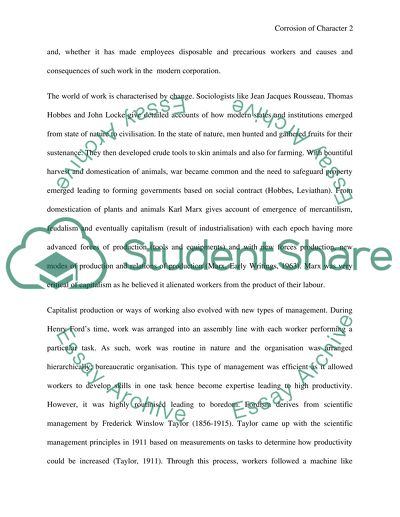Cite this document
(The Division of Labor in Society Essay Example | Topics and Well Written Essays - 2250 words, n.d.)
The Division of Labor in Society Essay Example | Topics and Well Written Essays - 2250 words. Retrieved from https://studentshare.org/sociology/1689482-r-sennett-the-corrosion-of-character-the-personal-consequences-of-work-in-the-new-capitalism-norton-1999
The Division of Labor in Society Essay Example | Topics and Well Written Essays - 2250 words. Retrieved from https://studentshare.org/sociology/1689482-r-sennett-the-corrosion-of-character-the-personal-consequences-of-work-in-the-new-capitalism-norton-1999
(The Division of Labor in Society Essay Example | Topics and Well Written Essays - 2250 Words)
The Division of Labor in Society Essay Example | Topics and Well Written Essays - 2250 Words. https://studentshare.org/sociology/1689482-r-sennett-the-corrosion-of-character-the-personal-consequences-of-work-in-the-new-capitalism-norton-1999.
The Division of Labor in Society Essay Example | Topics and Well Written Essays - 2250 Words. https://studentshare.org/sociology/1689482-r-sennett-the-corrosion-of-character-the-personal-consequences-of-work-in-the-new-capitalism-norton-1999.
“The Division of Labor in Society Essay Example | Topics and Well Written Essays - 2250 Words”. https://studentshare.org/sociology/1689482-r-sennett-the-corrosion-of-character-the-personal-consequences-of-work-in-the-new-capitalism-norton-1999.


